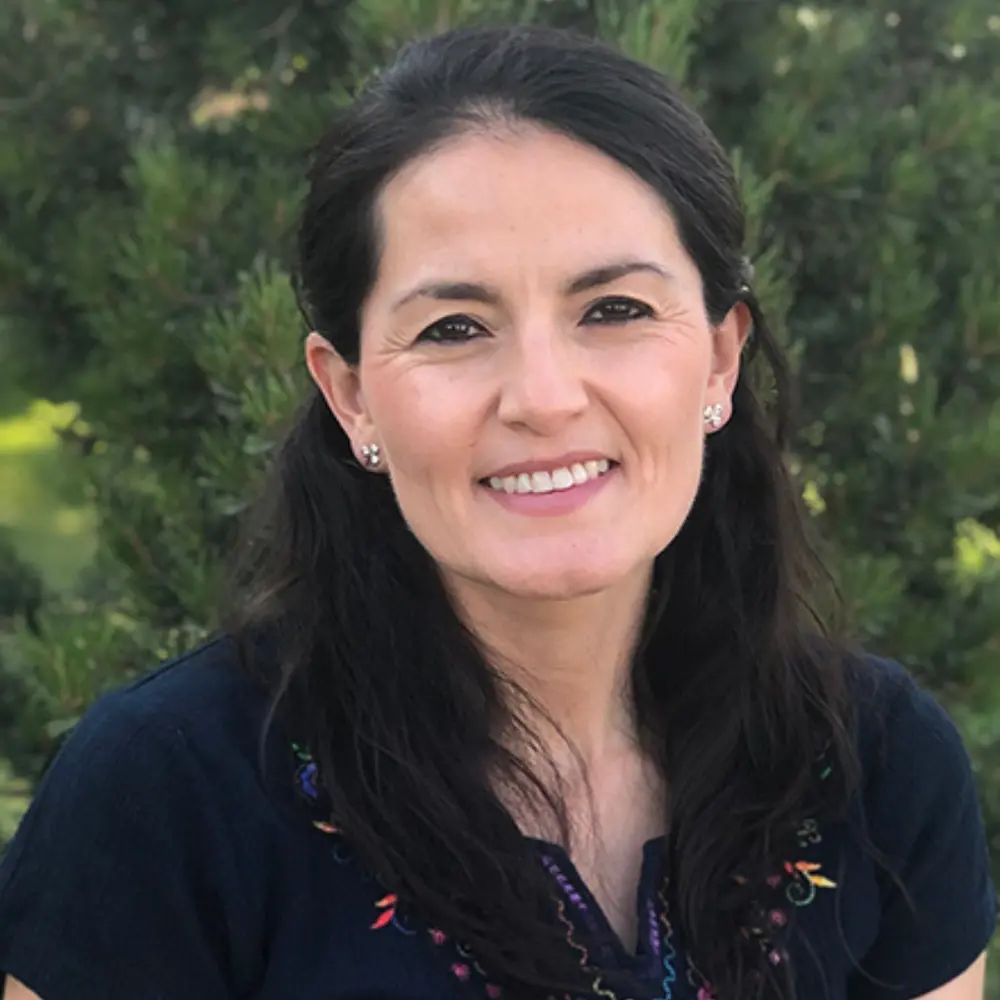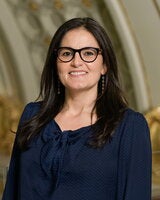
Professor Mera was one of ten new faculty hires made in the School of Molecular and Cellular Biology in the last three years. Mera is an assistant professor of microbiology, and is also an affiliate of the Microbial Systems Initiative.
Tell us about your lab and your research focus, including how you came to choose or specialize in this area.
My lab’s research focuses on the regulation of the bacterial cell cycle. Bacteria are remarkable in their ability to coordinate numerous complex processes in very short times and inside tiny spaces. We use a systemic approach to figure out how essential molecular machines communicate with each other to exquisitely synchronize the life cycle of bacteria. Ultimately, we are trying to uncover the secrets to their success.
What is especially exciting about this particular area of research, at this time?
Figuring out how bacteria work has always been exciting, but that excitement has grown exponentially lately with our current appreciation of the many vital roles that bacteria (found inside and outside of us) play in human survival. The desire to understand and, ultimately, control the life cycle of bacteria has never been greater; however, our current understanding of how bacteria regulate their growth (specifically about the internal communication between molecular machines) still lacks critical information. Our research aims at filling this gap of knowledge so that we can design better ways to enhance the growth of the “good” bacteria and inhibit the growth of the ones that cause disease.
What interested you the most about becoming a faculty member in the School of Molecular and Cellular Biology and the University of Illinois?
Scientific research advances at great speeds when the environment is collaborative, supportive, diverse, and multidisciplinary. MCB at the University of Illinois has that reputation. I wanted to be part of a scientific community that promotes collaboration and innovation. In my short time at UIUC so far, I have witnessed the collaborative and supportive environment from all members of the university.
What are your teaching interests?
I’ll start by saying that I love teaching, and I am excited to teach and interact with students in-person once this pandemic is under control. My teaching interests include anything that combines biochemistry with bacteria, like microbial physiology and microbial biochemistry.
If any students (undergrad or grad) are interested in working in your lab, what’s your advice or how can they get in touch with you?
After this pandemic is under control, I plan to have many undergraduate students working in my lab. I strongly believe in the importance of research as a fundamental component for the success of our students. My goal is to have undergraduate students start early (i.e., as sophomores or juniors) working in the lab so that by the time they graduate, they are running their projects independently. If you are undergraduate/graduate student interested in doing research in my lab, please email me so that we can setup an in-person meeting. In that email, mention briefly why you are interested in my lab and tell me a little about your career goals. I look forward to talking with you!
Tell us about someone who made a difference in your life, such as someone who sparked your interest in biology, who encouraged you to pursue a career in academia or challenged your thinking about a topic.
I have been fortunate to have many amazing mentors throughout my career. The two mentors who have had the biggest impact in my life have been my graduate and my postdoctoral mentors. I completed my PhD at the University of Wisconsin-Madison working with Jorge Escalante-Semerena (an alumnus of MCB here at UIUC!). Jorge was always incredibly supportive and inspired me to dream big and to trust my scientific intuition. While working in his lab, I fell in love with science and with the freedom that academia offers. From there, I went to Stanford University to work with Lucy Shapiro as a post-doctoral fellow. While in the Shapiro lab, I developed my fascination with the machinery that regulates the bacterial cell cycle. Lucy remains an incredible role model for me and others, and she is a great example of a strong, successful, and supportive woman in science.
What do you like to do in your free time?
I like to do yoga. I discovered yoga while I was in graduate school and since then it has helped me to stay (or at least try to stay) mentally and physically healthy throughout my career. I also enjoy taking walks with my family and our big sweet dog, Luna.
